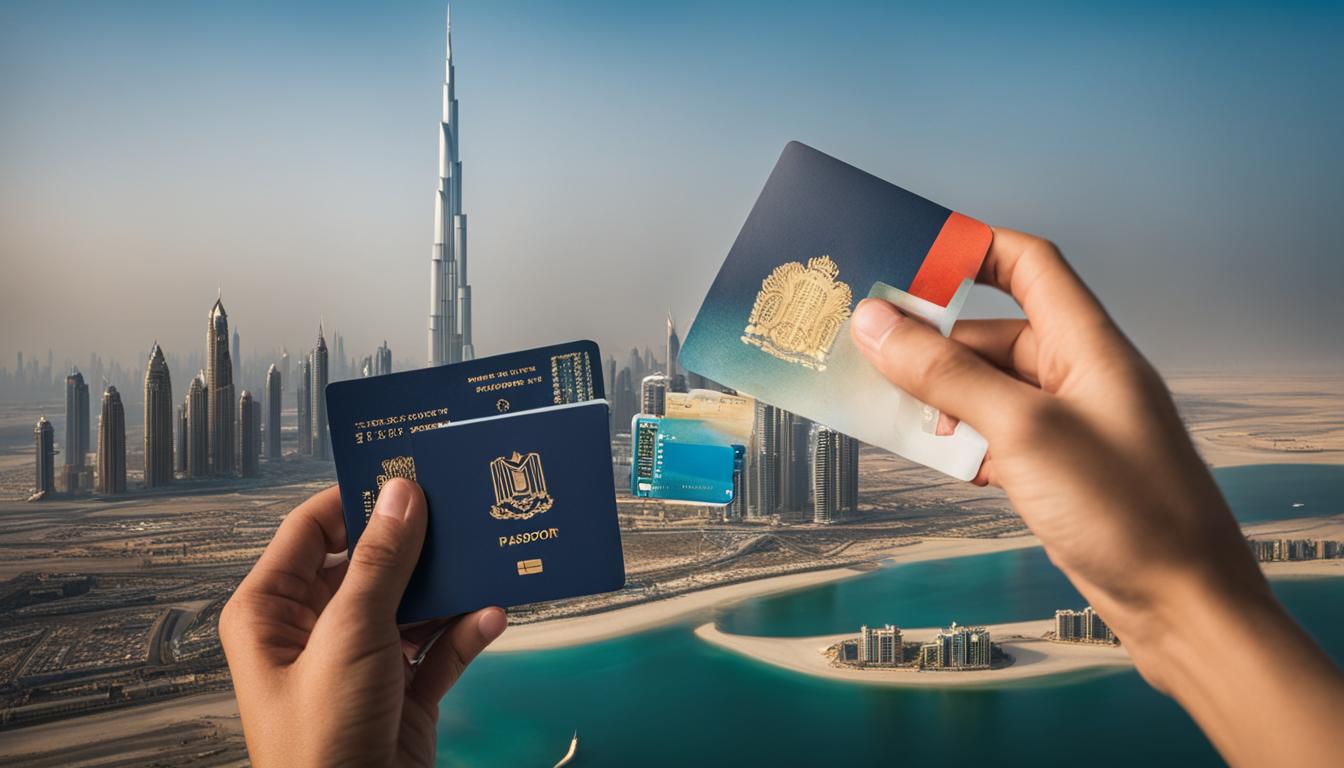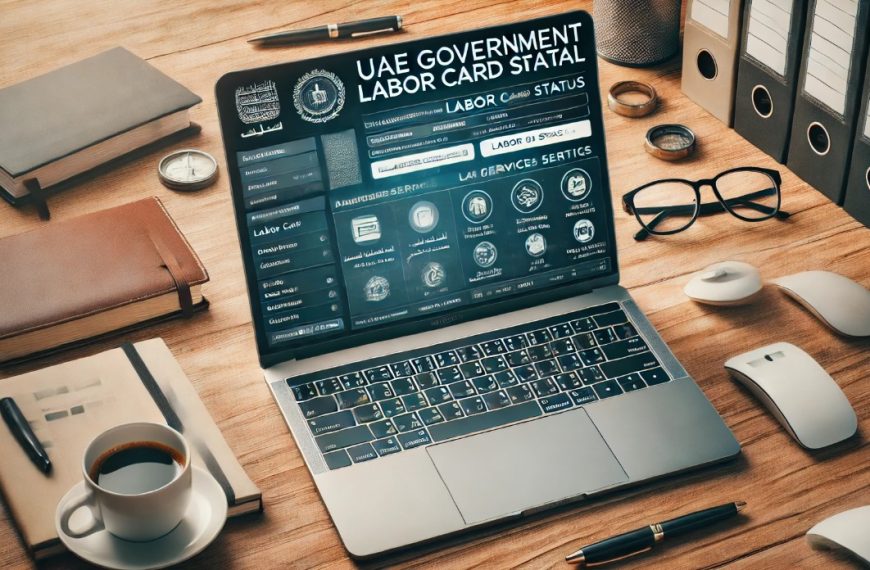Greetings from Dubai! Opening a bank account in Dubai is essential for residents and expats, facilitating various financial transactions smoothly. In this guide, I’ll simplify the steps required to open a bank account in Dubai, offer tips for a seamless process, and help you choose the right bank.
Whether you’re new to Dubai or a long-time resident, having a local bank account streamlines tasks like bill payments and salary deposits. Let’s dive into the basics of opening a bank account in Dubai and explore the necessary requirements together. Let’s embark on your banking journey in Dubai!
How to Open a Bank Account in Dubai?
Opening a bank account in Dubai is a straightforward process that involves the following steps:
- Gather the necessary documents: You will need to provide a copy of your passport, Emirates ID (if applicable), visa, and proof of address.
- Choose the right bank: Research different banks to find one that offers the services you need and has favorable fees and interest rates.
- Visit the bank: Schedule an appointment with your chosen bank and bring all required documents with you.
- Fill out the application form: The bank will provide you with an application form to fill out.
- Submit the documents: Submit your completed application form along with all required documents to the bank.
- Wait for approval: The bank will review your application and either approve or reject it. If approved, you will receive your account details and can start using your new bank account.
It’s important to note that some banks may have additional requirements or steps for opening a bank account, so be sure to check with your bank beforehand. Additionally, be prepared to pay any required fees or maintain a minimum balance in your account.
Requirements for Opening a Bank Account in Dubai
Before opening a bank account in Dubai, it is essential to know the necessary requirements. The requirements vary based on the bank, but there are specific standard documents that all banks require:
- Residency permit: You must have a valid residency permit to open a bank account in Dubai.
- Identification documents: You must have a valid passport and a Emirates ID for the verification process.
- Proof of address: You will need to provide proof of your residential address, such as utility bills or rental agreements.
There may also be additional requirements depending on the type of account you select or the bank you choose. Some banks may require a minimum deposit or a specific industry of your employer. It is recommended to check with your chosen bank to ensure you have all the necessary documentation for your application.

Choosing the Best Bank for Opening an Account in Dubai
When it comes to opening a bank account in Dubai, choosing the right bank is crucial. Some banks are more expat-friendly, while others offer more perks and benefits. Here are some factors to consider when selecting the best bank for opening an account in Dubai.
- Account types: Different banks offer different types of accounts, such as savings accounts, current accounts, and children’s accounts. Choose a bank that offers the type of account that fits your financial needs.
- Fees: Bank fees can vary widely, so it’s important to choose a bank with reasonable fees or no fees at all. Look for banks that offer free ATM withdrawals, low transaction fees, and no monthly maintenance fees.
- Customer service: Good customer service is essential when it comes to handling your finances. Choose a bank that has a helpful and knowledgeable customer support team that is available to assist you with any banking issues.
- Additional services: Some banks offer additional services such as online banking, mobile banking, and wealth management services. If these services are important to you, choose a bank that offers them.
When it comes to the best banks for expats in Dubai, several options stand out. HSBC, for example, offers a range of expat-focused services such as foreign currency accounts, international money transfers and offshore banking. Mashreq Bank is another popular choice, particularly for its digital banking capabilities, including its mobile app, and many branches located throughout Dubai.
Choosing the best bank for opening an account in Dubai is a crucial step towards ensuring a smooth and hassle-free banking experience. By considering factors such as account types, fees, customer service, and additional services, you can select a bank that will best fit your financial needs and goals.
Types of Bank Accounts in Dubai
When it comes to bank account options in Dubai, there are several types to choose from. These include current accounts, savings accounts, and offshore accounts, each with their own features and benefits.
Current Accounts
A current account is a standard checking account that is used for day-to-day transactions. This type of account typically offers features like debit cards, online banking, and overdraft protection. Some banks may also offer rewards programs or other incentives for using their current account services.
Savings Accounts
A savings account is designed for individuals who want to save and make money in Dubai and earn interest. This type of account may require a minimum balance to be maintained, and interest rates may vary depending on the bank. Some savings accounts may also offer additional benefits such as ATM access and free money transfers.
Offshore Accounts
An offshore account is typically used by individuals or businesses who want to manage their finances in multiple currencies or jurisdictions. These accounts may offer benefits such as tax advantages, greater privacy, and higher interest rates. However, offshore accounts may also be subject to additional fees and regulations.

When choosing a bank account in Dubai, it’s important to consider your individual needs and financial goals. Be sure to research different banks and their services, and compare account fees and interest rates to find the best option for you.
Understanding Dubai Bank Account Regulations
When opening a bank account in Dubai, it’s essential to have a clear understanding of the regulatory framework put in place. The Central Bank of the UAE oversees all financial institutions operating in the country, and sets guidelines and regulations that banks must adhere to.
Aside from these overarching regulations, there are also specific rules and restrictions that individuals need to be aware of when opening and operating a bank account in Dubai. For instance, non-residents may face additional documentation requirements, and some banks may require a minimum balance to be maintained.
“The regulatory landscape for banking in Dubai may seem overwhelming at first, but with the right knowledge and preparation, it’s entirely manageable. Just make sure to do your due diligence and understand the requirements before diving in,” said Sarah Ahmed, a banking expert in Dubai.
Key Regulations and Rules to Know
| Regulation | Description |
|---|---|
| Know Your Customer (KYC) | Banks in Dubai are required to verify the identity of customers and establish the nature of their business to prevent money laundering and fraudulent activity. |
| Proof of Address | Individuals opening a bank account in Dubai must provide proof of their residential address. This can be in the form of a utility bill or a rental agreement, among others. |
| Minimum Balance Requirement | Some banks in Dubai require customers to maintain a minimum balance in their accounts. This can vary depending on the type of account and the bank’s policies. |
| Residency Requirement | Non-residents may have additional documentation requirements and may be subject to more strict regulations when opening a bank account in Dubai. |
By understanding the regulations and rules that govern banking in Dubai, individuals can ensure a smooth experience when opening and maintaining their bank accounts.
Opening a Bank Account as an Expat in Dubai
If you’re an expat planning to open a bank account in Dubai, there are several additional requirements and challenges to keep in mind. Firstly, you may be asked to provide proof of income or employment, as well as a resident visa and valid passport. Some banks may also require a residence permit or Emirates ID card.
It’s important to note that expats may face higher minimum balance requirements and fees compared to local residents. You may also need to provide additional documentation, such as a no-objection letter from your employer or landlord. It’s always best to contact your chosen bank directly to understand their specific requirements for expat bank accounts.
Another consideration for expats is the potential language barrier. While many banks offer English-language services, it’s possible that some documents or procedures may only be available in Arabic. It’s always a good idea to ensure you have a clear understanding of the bank’s requirements and policies before opening an account.
Lastly, it’s important to consider the exchange rates and fees for international transfers. As an expat, you may need to transfer money to and from your home country, which can be costly if not managed properly. Be sure to research your bank’s fees and exchange rates to ensure you’re getting the best deal.

Opening a bank account as an expat in Dubai may require additional effort, but it’s a necessary step for those living and working in the UAE. By being prepared and understanding the requirements and potential challenges, you can ensure a smooth and successful banking experience.
Tips for a Smooth Bank Account Opening Experience
Opening a bank account in Dubai can seem like a daunting task, but with the right preparation, it can be a smooth experience. Here are some tips to help you get started:
- Ensure you have all the necessary documents: Before you visit a bank, make sure you have all the required documents, including ID, proof of address, and residency permits if applicable. Check with the bank beforehand to see if there are any additional requirements.
- Choose the right bank: Research different banks in Dubai and choose the one that best fits your needs. Consider factors such as fees, account types, customer service and loans in Dubai.
- Understand the bank’s requirements: Make sure you’re aware of all the requirements and fees associated with opening and maintaining a bank account in Dubai. This will help avoid any surprises or delays in the process.
- Consider using a local sponsor: If you’re a non-resident, you may need a local sponsor to help you open a bank account in Dubai. Consider working with a reputable sponsor to make the process easier.
- Take advantage of digital services: Many banks in Dubai offer digital services such as online banking and mobile apps. Take advantage of these services to manage your account more efficiently.
By following these tips, you can ensure a smoother experience when opening a bank account in Dubai. Remember to always research your options and be prepared with the necessary documents.
Managing Your Dubai Bank Account
Now that you have opened your bank account in Dubai, it is essential to manage it effectively. Here are some tips to help you:
- Take advantage of online banking: Most banks in Dubai offer online banking facilities, allowing you to check your account balance, transfer funds, and pay bills. It is a convenient way to track your account activity and stay on top of your finances.
- Set up automatic payments: Many banks offer automatic bill payment services, ensuring your bills are paid on time, and you avoid late fees. Set up automatic payments for recurring monthly bills, such as rent, utilities, and phone bills.
- Use the bank’s digital services: Banks in Dubai offer a range of digital services, including mobile banking and e-wallets. Take advantage of these services to make banking transactions on-the-go, and to manage your finances from your smartphone.
By utilizing these services, you can efficiently manage your Dubai bank account, making it easier to stay in control of your finances.
Conclusion
In conclusion, opening a bank account in Dubai may seem overwhelming, but it doesn’t have to be. As I’ve outlined in this guide, the process involves gathering the necessary documents, choosing the right bank, and being aware of any regulations or restrictions.
By doing some research and preparing yourself ahead of time, you can ensure a smooth experience and enjoy the many benefits of having a bank account in the UAE.
Remember to choose a bank that offers the services and features that align with your needs, whether you’re an expat or a local resident. And once you’ve opened your account, make sure to maintain a good relationship with your bank by staying on top of your finances and taking advantage of their digital services.
I hope this guide has been helpful in providing you with the information you need to open a bank account in Dubai. If you have any further questions or concerns, don’t hesitate to reach out to your bank or a financial advisor.
FAQ
How do I open a bank account in Dubai?
To open a bank account in Dubai, you will need to follow a few simple steps. First, choose the bank where you want to open an account. Then, gather the necessary documents such as your passport, visa, Emirates ID, and proof of address. Visit the bank branch and fill out the account opening form. Finally, deposit the minimum required amount and wait for your account to be activated.
What documents do I need to open a bank account in Dubai?
The documents needed to open a bank account in Dubai typically include your passport, visa, Emirates ID, and proof of address. Additional documents may be required depending on the bank’s specific requirements.
Which is the best bank for opening an account in Dubai?
The best bank for opening an account in Dubai depends on your personal preferences and needs. Some popular banks in Dubai include Emirates NBD, Abu Dhabi Commercial Bank and Dubai Islamic Bank to open a bank account. It is recommended to compare their account features, fees, and services to find the bank that best suits your requirements.
What types of bank accounts are available in Dubai?
In Dubai, you can find various types of bank accounts, including current accounts, savings accounts, and offshore accounts. Each account type has its own features and benefits, so it’s essential to choose the one that aligns with your financial goals.
What are the regulations for opening a bank account in Dubai?
Opening a bank account in Dubai is subject to the regulations set by the Central Bank of the UAE. These regulations aim to combat money laundering and ensure the integrity of the financial system. It’s important to comply with these regulations and provide the necessary documentation to open an account in Dubai.
Can expats open bank accounts in Dubai?
Yes, expats can open bank accounts in Dubai. However, they may need to fulfill additional requirements compared to UAE nationals. Expats typically need to provide their visa and residency permit along with the other required documents to open a bank account in Dubai.
Any tips for a smooth bank account opening experience in Dubai?
To ensure a smooth bank account opening experience in Dubai, it’s important to be prepared with all the necessary documents. Research the bank’s requirements and have the required minimum balance ready. It’s also recommended to understand the bank’s fees and charges and choose a bank with good customer service and digital banking capabilities.
How can I manage my Dubai bank account effectively?
To manage your Dubai bank account effectively, take advantage of the bank’s online banking services. Set up automatic payments for regular bills and explore the mobile banking apps for convenient access to your account. Regularly review your transactions and statements to stay on top of your finances.









